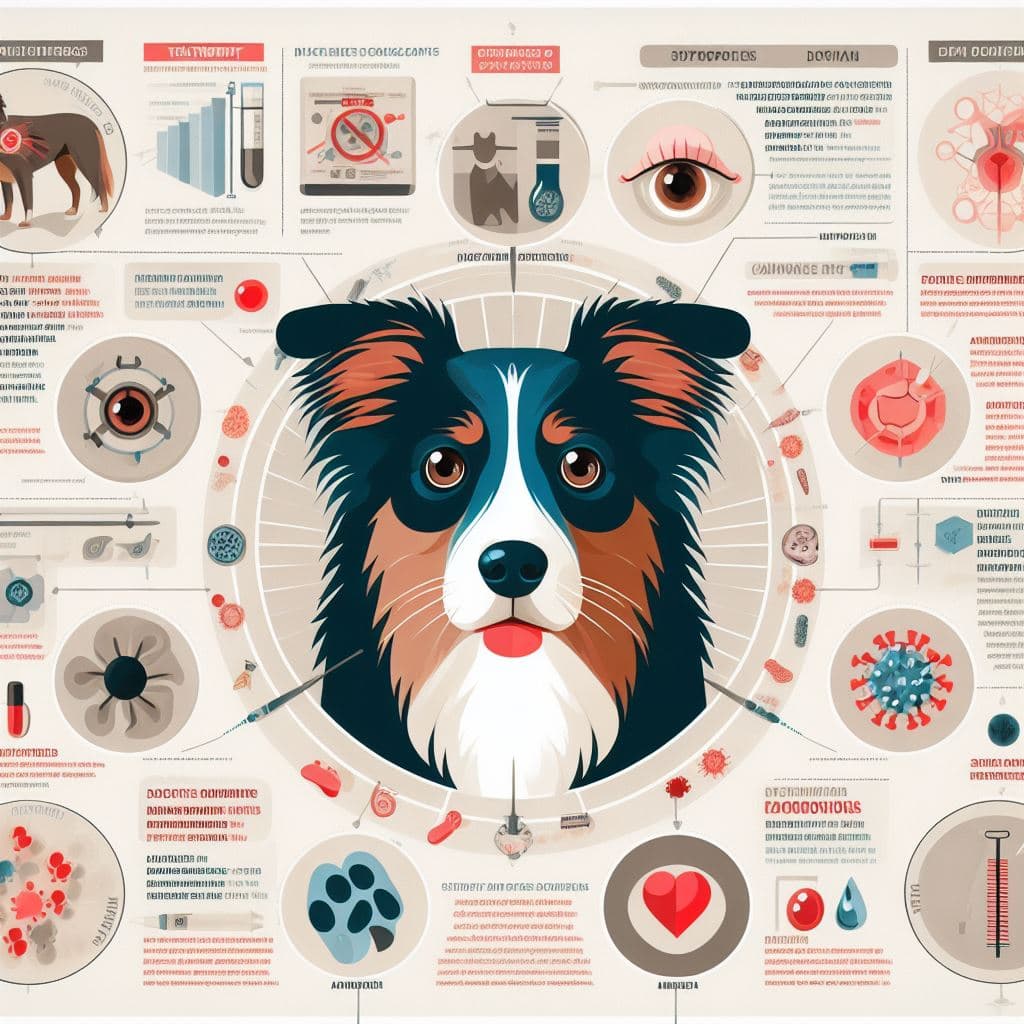If you have a dog as a pet, you're likely concerned about their health and well-being. Dogs can suffer from various diseases, some more serious than others, which can affect their quality of life and their relationship with you. Therefore, it's important to know the most common diseases in dogs and how to prevent them, in order to take care of your loyal companion in the best way possible.
In this article, we'll explain the 10 most frequent diseases in dogs, their symptoms, causes, and treatments. Additionally, we'll provide you with some tips to strengthen your dog's immune system and prevent them from getting sick or infected. At the end of the article, we'll reveal which dog breed has the strongest immune system, according to some studies. Are you going to miss it? Keep reading and discover everything you need to know about your dog's health.
1. Parvovirus
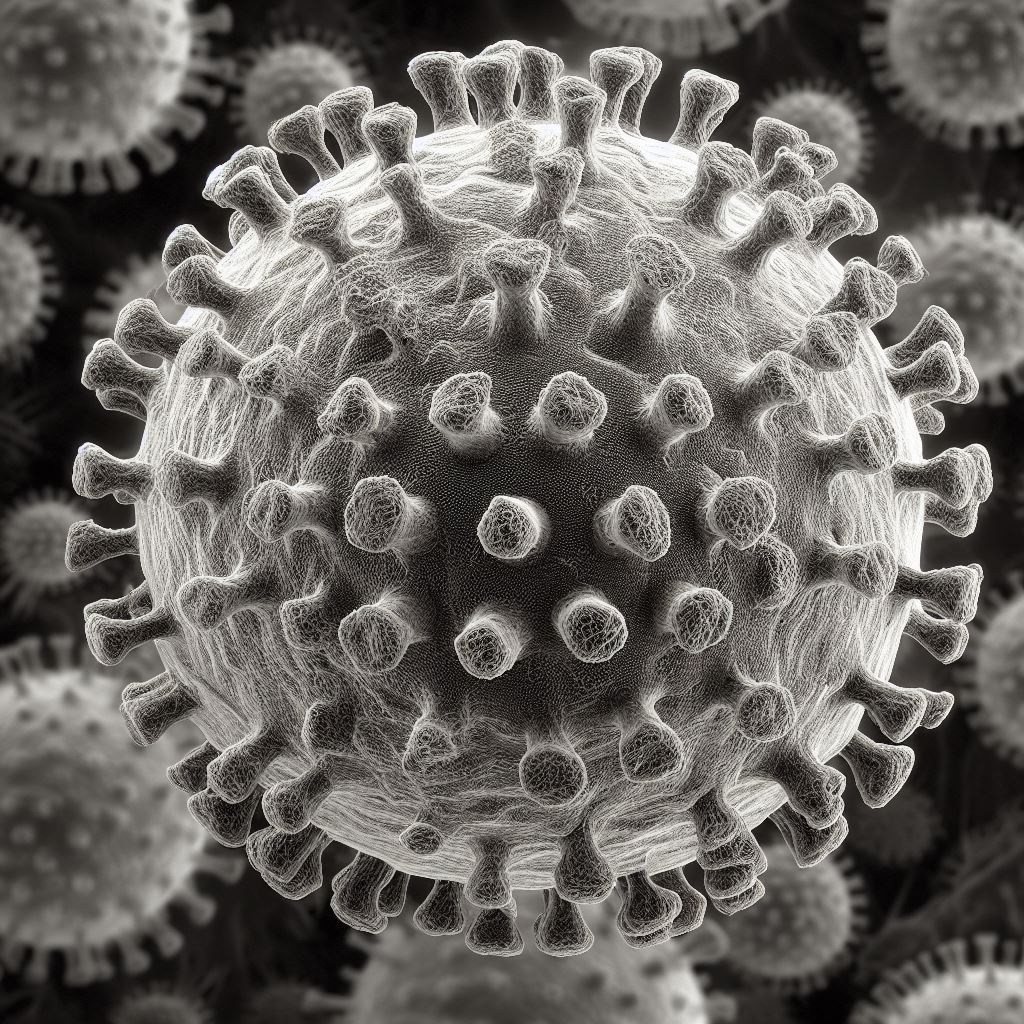
Parvovirus is one of the most severe and contagious diseases that can affect dogs, especially puppies. It's a viral infection that attacks the small intestine, causing bloody diarrhea, vomiting, fever, loss of appetite, and dehydration. If not treated in time, it can lead to the dog's death due to septic shock.
Parvovirus is transmitted through direct contact with the feces of an infected dog or contaminated objects. The virus can survive in the environment for months, making it challenging to eliminate. The best way to prevent this disease is to vaccinate the dog from a young age and avoid contact with other unknown or sick dogs.
The treatment for parvovirus involves administering intravenous fluids to rehydrate the dog and antibiotics to prevent secondary infections. Medications to control vomiting and stimulate appetite may also be given. The prognosis depends on the dog's age, overall health, and how quickly treatment is initiated.
2. Canine Distemper

Canine distemper is another highly contagious viral disease that affects dogs, especially young or immunocompromised ones. The virus is transmitted through the respiratory tract or contact with nasal or ocular secretions of an infected dog. Distemper affects various organs, including the lungs, stomach, liver, and nervous system.
Symptoms of distemper can vary depending on the phase and severity of the disease. Common signs include nasal and ocular discharge, coughing, sneezing, fever, loss of appetite, diarrhea, vomiting, seizures, paralysis, and changes in behavior. Distemper can be fatal if not treated properly.
Preventing distemper is based on vaccinating the dog from a young age and avoiding contact with other dogs that are sick or unvaccinated. Treatment for distemper involves administering medications to relieve symptoms and prevent complications. There is no specific antiviral for this disease, so the prognosis depends on the dog's immune status and the course of the infection.
3. Leptospirosis
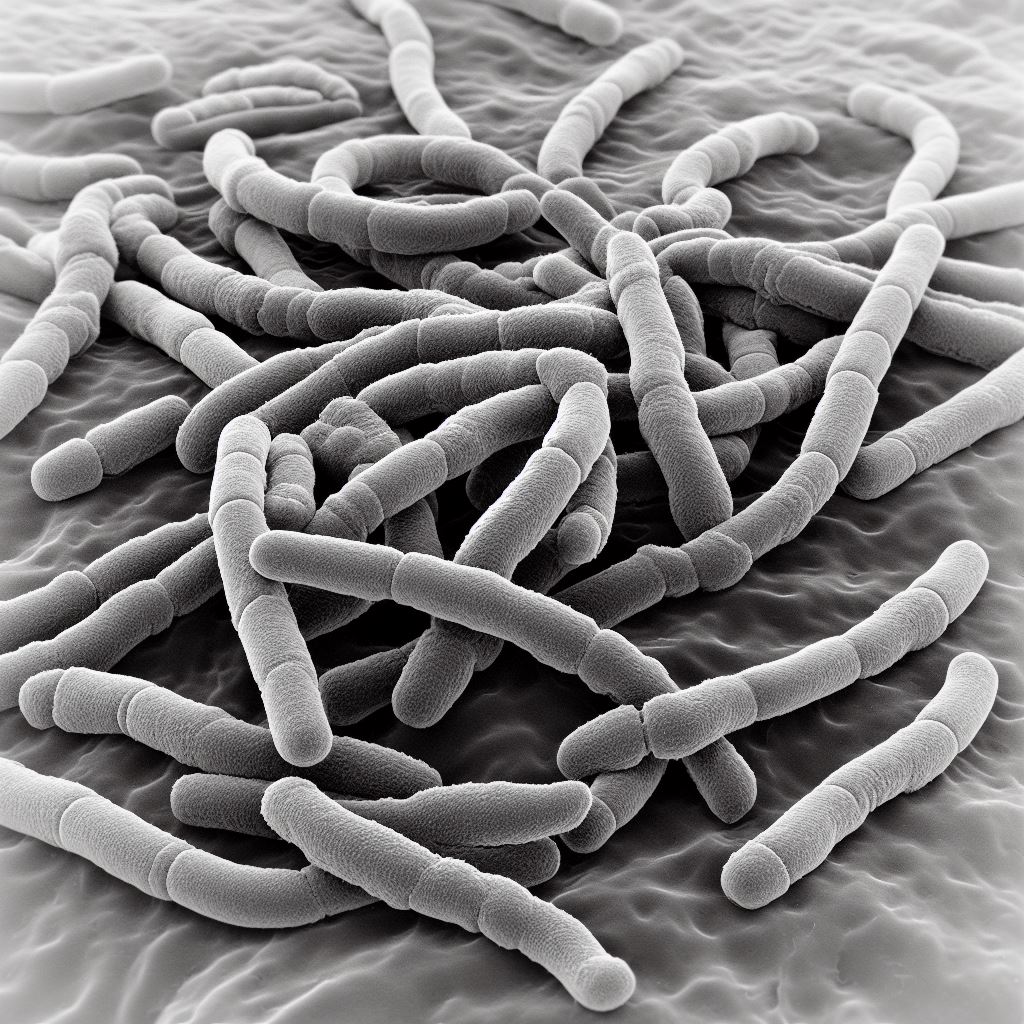
Leptospirosis is a bacterial disease that can affect both animals and humans. It is transmitted through contact with urine or water contaminated by rodents or other animals carrying the bacteria. Leptospirosis can cause damage to the liver, kidneys, and other vital organs.
Symptoms of leptospirosis can include fever, loss of appetite, vomiting, diarrhea, jaundice (yellowing of the skin and mucous membranes), bleeding, muscle and joint pain, difficulty urinating, and depression. If not treated promptly, it can lead to renal, hepatic, or respiratory failure, and even death.
Preventing leptospirosis involves vaccinating the dog and preventing them from drinking or bathing in stagnant or dirty water. Treatment for leptospirosis consists of administering antibiotics to eliminate the bacteria and intravenous fluids to rehydrate and support renal function. The prognosis depends on the severity of the infection and the response to treatment.
4. Allergic Dermatitis

Allergic dermatitis is one of the most common skin diseases in dogs. It occurs when the dog has an exaggerated reaction to substances that trigger allergies, such as pollen, dust, mites, food, or insect bites. Allergies can cause inflammation, itching, and irritation of the skin, leading the dog to scratch, lick, or bite themselves, resulting in wounds, crusts, and secondary infections.
Symptoms of allergic dermatitis can include redness, swelling, flaking, hair loss, crusts, pustules, and an unpleasant odor in the skin. Allergic dermatitis can affect any part of the body but is more common in the ears, paws, abdomen, and armpits.
Preventing allergic dermatitis involves identifying and avoiding contact with the allergenic substance. Treatment for allergic dermatitis includes administering medications to reduce inflammation and itching, such as antihistamines, corticosteroids, or immunotherapy. Special creams or shampoos can be applied to soothe and clean the skin. Additionally, it's important to treat possible secondary infections with antibiotics or antifungals.
5. Ear Infections (Otitis)

Otitis is an inflammation of the dog's ear canal that can be caused by various factors, such as moisture, excessive wax, parasites, allergies, or bacterial or fungal infections. Otitis can affect one or both ears and may cause pain, itching, discharge, bad odor, and hearing loss.
Symptoms of otitis can include head shaking, head tilting, crying or whining when touching the ears, inflammation, redness, warmth, and an unpleasant odor in the ear canal. In severe cases, otitis can lead to neurological problems such as loss of balance or involuntary eye movements.
Preventing otitis involves keeping the dog's ears clean and dry, especially after bathing or swimming. It's also recommended to regularly check the dog's ears and remove excess hair or wax that may obstruct the ear canal. Treatment for otitis includes cleaning the affected ear with a specific solution and applying topical or oral medication based on the type and severity of the infection. The prognosis depends on the cause and progression of otitis.
6. Internal Parasites
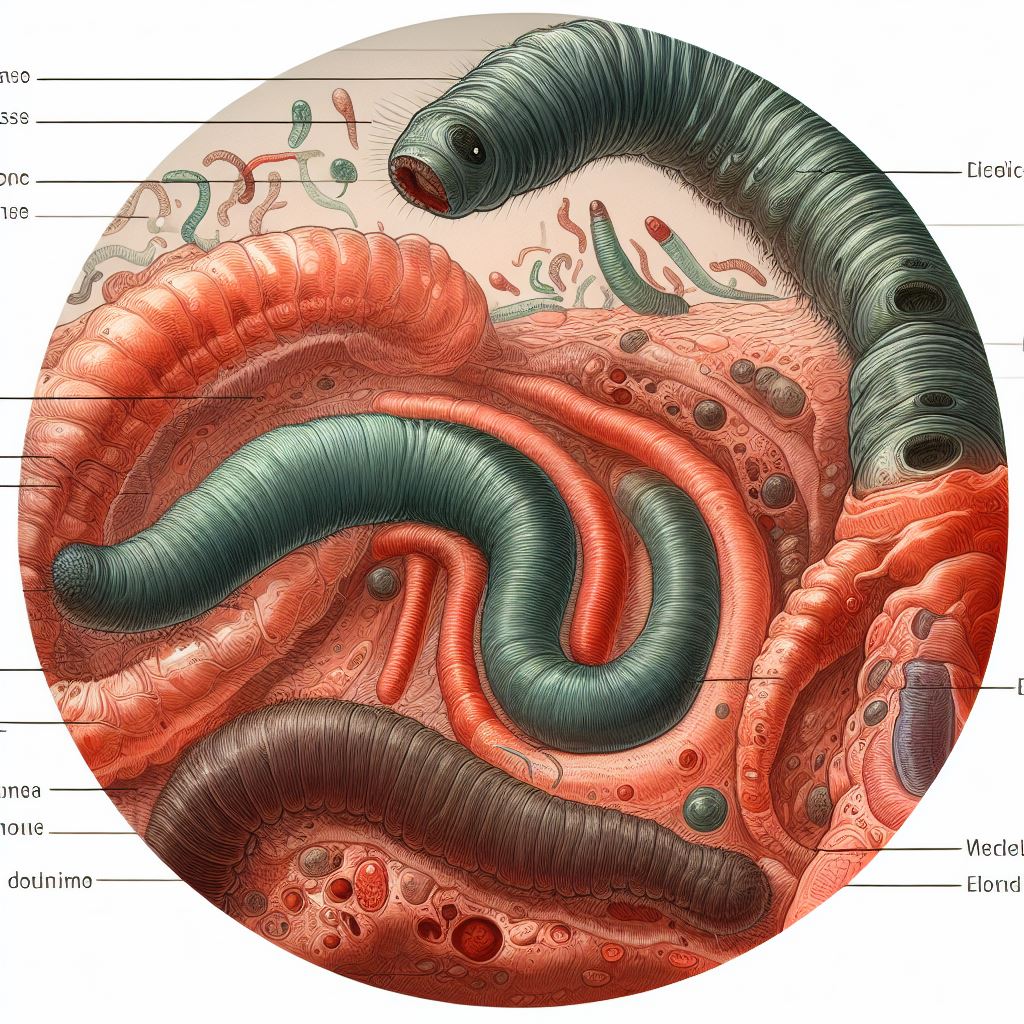
Internal parasites are organisms that live inside the dog's body and feed on their nutrients. The most common internal parasites are intestinal worms (roundworms, hookworms, tapeworms), heartworms (dirofilaria), and protozoa (coccidia, giardia). Internal parasites can cause various health problems in dogs, such as diarrhea, vomiting, weight loss, anemia, coughing, and difficulty breathing.
Symptoms of internal parasites may include soft or bloody stools, the presence of worms or white segments in the feces or around the anus, a swollen or painful abdomen, increased or decreased appetite, weakness, lethargy, dull coat, and respiratory or cardiac issues.
Preventing internal parasites involves regular deworming of the dog with a suitable product based on the type and weight of the animal. It's also recommended to prevent the dog from ingesting feces, garbage, rodents, or other animals that may be infected. Treatment for internal parasites consists of administering a specific antiparasitic based on the veterinary diagnosis. The prognosis depends on the parasite load and the dog's health status.
7. External Parasites
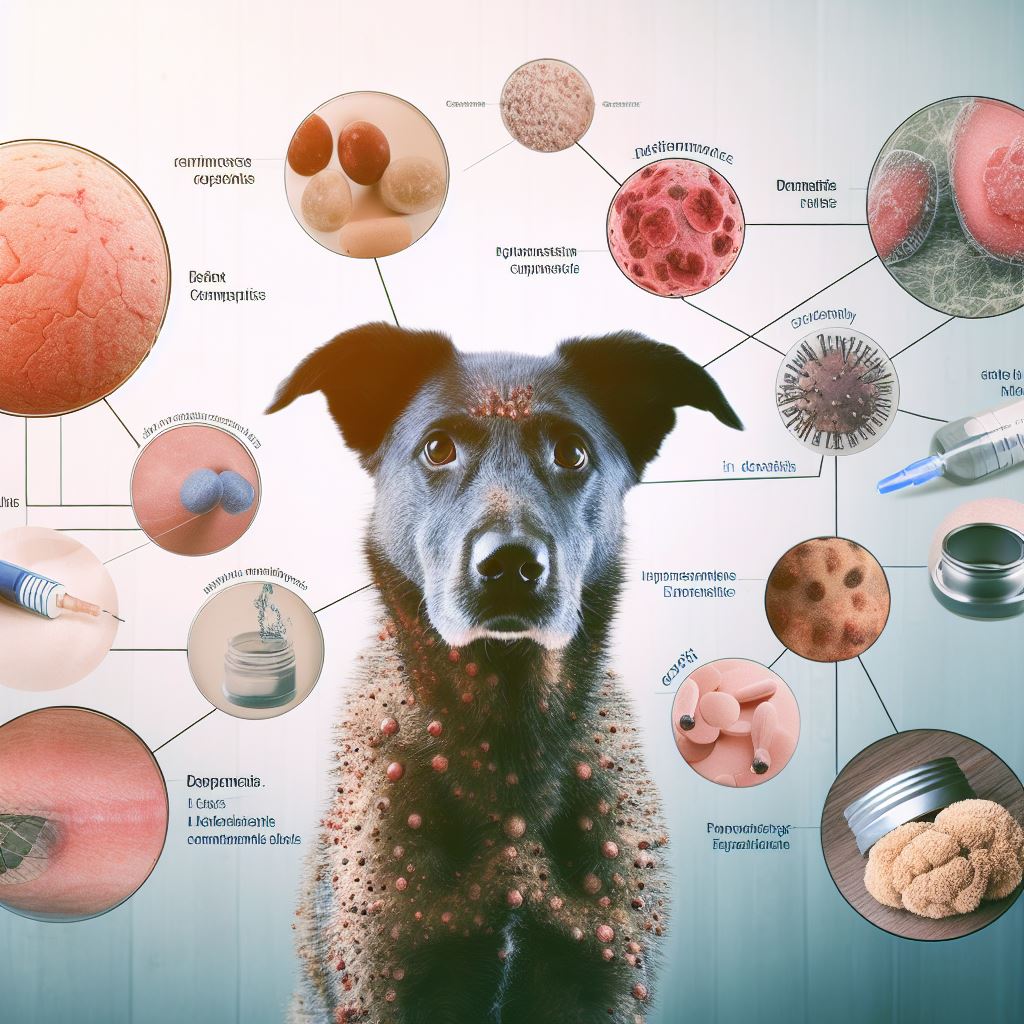
External parasites are organisms that live on the dog's skin or fur and feed on their blood or tissues. The most common external parasites are fleas, ticks, mites, and lice. External parasites can
cause irritation, itching, allergies, anemia, and secondary infections in dogs. Additionally, some external parasites can transmit severe diseases to both dogs and humans, such as leishmaniasis, Lyme disease, or ehrlichiosis.
Symptoms of external parasites may include scratching, excessive biting, or licking of the skin or coat, hair loss, wounds, scabs, scales, redness, inflammation, or bleeding on the skin. The presence of parasites or their eggs on the dog's body may also be observed.
Preventing external parasites involves applying an appropriate antiparasitic product to the dog based on their type and weight. Regular inspection and brushing of the dog are also recommended to avoid contact with infested areas or other animals. Treatment for external parasites consists of removing the parasites with a specific product and treating possible injuries or secondary infections with antibiotics or antifungals.
8. Gastritis
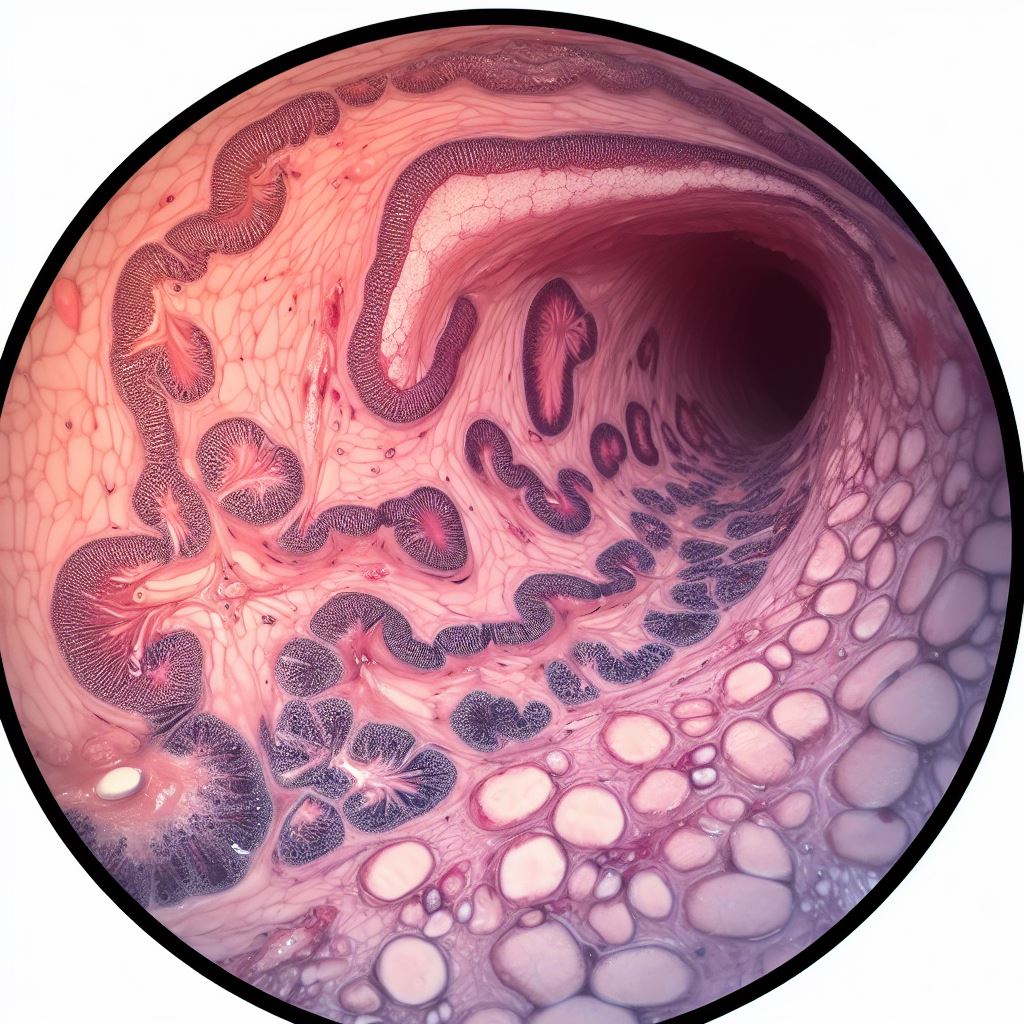
Gastritis is an inflammation of the dog's stomach that can be caused by various factors, such as ingesting spoiled, toxic, or foreign foods, stress, allergies, infections, or certain systemic diseases. Gastritis can be acute or chronic, depending on the duration and frequency of symptoms.
Symptoms of gastritis may include vomiting, nausea, loss of appetite, abdominal pain, weakness, and dehydration. In some cases, vomiting may contain blood or bile. Gastritis can lead to complications such as gastric ulcers or gastrointestinal bleeding.
Preventing gastritis involves providing the dog with a suitable and balanced diet while avoiding foods that may irritate their stomach or cause allergies. It's also recommended to prevent the dog from ingesting foreign objects or toxic substances and to control their stress levels. Treatment for gastritis consists of administering medications to protect the gastric mucosa and reduce vomiting, such as antacids, gastric protectors, or antiemetics. The dog may be given a soft and easily digestible diet until they recover.
9. Arthritis
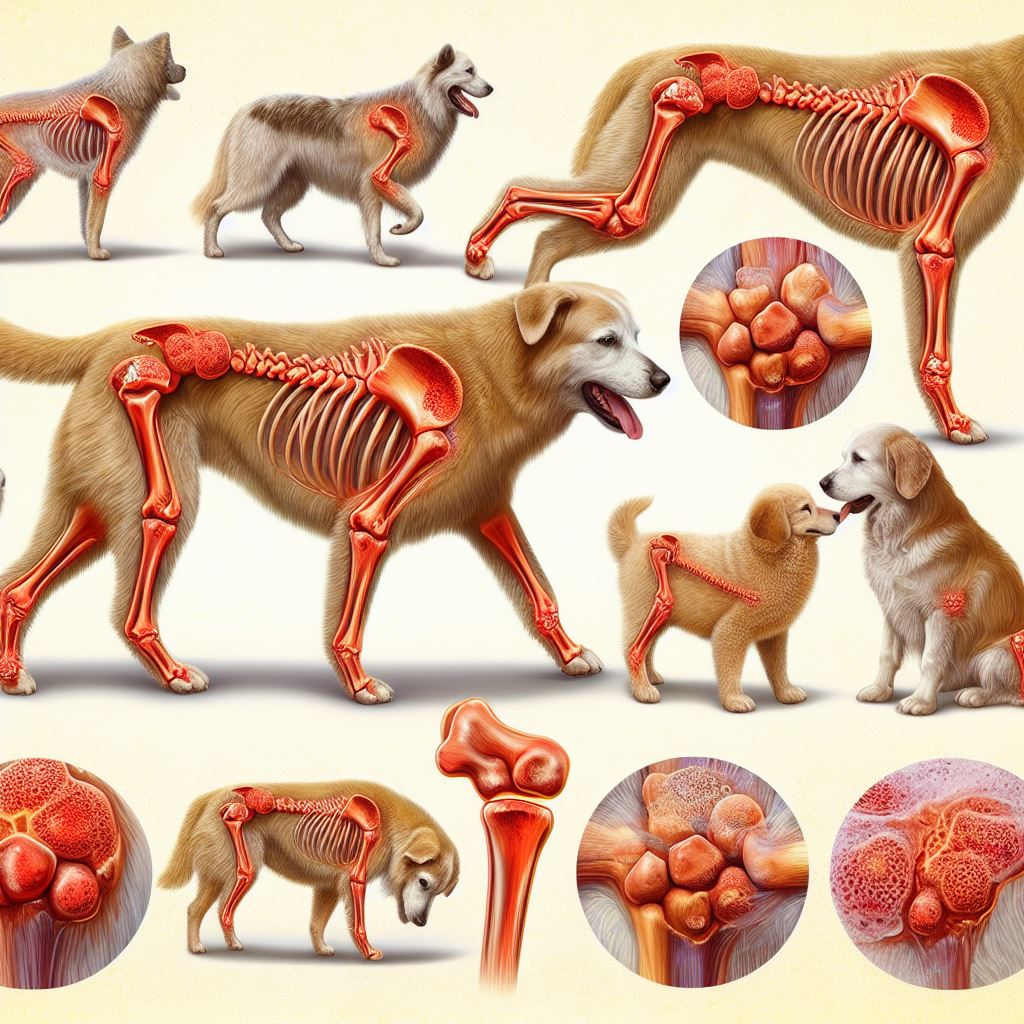
Arthritis is a degeneration of the dog's joint cartilage, causing pain and inflammation in the joints. Arthritis can be caused by natural aging, genetic predisposition, traumatic injury, or infection. It usually affects the larger and more frequently used joints of the body, such as the knees, hips, elbows, or shoulders.
Symptoms of arthritis may include limping, stiffness, difficulty moving or rising, pain when touching the affected joints, swelling or warmth in the joints, loss of muscle mass, and changes in behavior. Arthritis can affect the dog's quality of life and limit their physical activity.
Preventing arthritis involves maintaining the dog at an optimal weight and providing them with a diet rich in omega-3 fatty acids, which have anti-inflammatory properties. Moderate and regular exercise with the dog is also recommended, avoiding sudden or excessive movements that may harm their joints. The treatment of arthritis includes administering medications to relieve pain and inflammation, such as anti-inflammatories, analgesics, or chondroprotective agents. Alternative therapies like acupuncture, massage, or hydrotherapy may also be applied.
10. Diabetes

Diabetes is a metabolic disorder that occurs when the dog's pancreas does not produce enough insulin or when the body does not use it correctly. Insulin is a hormone that regulates blood glucose levels. Diabetes can be caused by genetic, environmental, or immunological factors and may be of type 1 (when the pancreas doesn't produce insulin) or type 2 (when the body doesn't respond to insulin).
Symptoms of diabetes may include increased thirst, appetite, and urination, weight loss, weakness, lethargy, vomiting, cataracts, and skin issues. Diabetes can lead to complications such as ketoacidosis, hypoglycemia, urinary, or neurological infections.
Preventing diabetes involves providing the dog with a suitable and balanced diet, avoiding foods high in sugar or fats. It's also recommended to maintain the dog at an optimal weight and engage in regular physical activity. The treatment for diabetes includes administering injectable insulin to the dog as per veterinary instructions and monitoring their blood glucose levels. Additionally, a special diabetic diet can help regulate their blood sugar.
Which Dog Breeds Have the Strongest Immune System?

Now that you know the most common diseases in dogs and how to prevent them, you might be wondering if there are dog breeds with the strongest immune systems that are more resistant to diseases. According to some studies, the breeds known to have the strongest immune systems include:
German Shepherd: Known for their strong immune response to bacterial and viral infections.
Border Collie: Exhibits a high production of antibodies and a robust immune response.
Labrador Retriever: Has a low incidence of autoimmune diseases and good antigen tolerance.
Rottweiler: Known for high natural killer cell activity and defense against tumors.
Mastiff: Exhibits high resistance to parasitic diseases and strong protection against external agents.
These breeds have stronger immune systems due to their genetic background, adaptation to the environment, and natural selection. However, this doesn't mean they are immune to all diseases, and they still require regular veterinary care, proper nutrition, vaccinations, and preventive health measures. Keep in mind that all dogs, regardless of their breed, need these essentials to stay healthy and happy.
We hope this article has been useful for gaining a better understanding of the most common diseases in dogs and how to safeguard their well-being. Remember that your dog is your best friend, and it's up to you to take care of their health and happiness. If you have any questions or concerns about your dog's health, don't hesitate to contact your trusted veterinarian.
